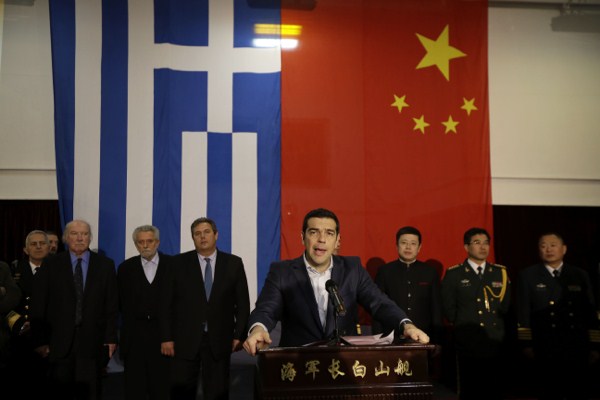While the world watches the ongoing debt negotiations between Greece and its international creditors mainly for their impact on the Greek and eurozone economies, the talks have already put Beijing’s plans for a strategic transport system meant to further integrate Europe and the Mediterranean with the Chinese market back on track. The new leftist government of Prime Minister Alexis Tsipras in Athens had initially announced plans to halt the privatization of Greece’s largest seaport, Piraeus, alarming investors from the Chinese shipping giant Cosco, which is keen to take a majority share in the Greek facility. But as part of the four-month bailout extension reached earlier this week between Greece and the so-called troika made up of the European Commission, the European Central Bank and the International Monetary Fund, Greece has reversed course and will go ahead with previously agreed-upon privatizations, including Piraeus.
Cosco is counting on turning the port into a key junction of its proposed “One Belt and One Road” transport system, a mammoth project in which Beijing aims to build both an overland corridor and a maritime route connecting eastern China to Western Europe. This major attempt at Eurasian interconnectivity under the Chinese flag, which will simultaneously offer a boost to Euro-Mediterranean integration, now has one fewer obstacle to clear.
In 2008, Cosco secured a 35-year concession for managing two piers at the Port of Piraeus. Last November, the company also signed a deal with the Greece’s then-conservative government led by former Prime Minister Anton Samaras to channel $263 million into the expansion of the most important harbor in Greece. Cosco was also considered the frontrunner in the tender for the sale of a 67 percent stake in the Piraeus Port Authority. Thanks to Chinese capital, Piraeus is now poised to become the biggest Mediterranean port in terms of cargo traffic, with Beijing planning to make Greece the main entry point for its exports toward northern and Western Europe through the Danube River Basin.

